Finding the best vitamins to take daily is a crucial step in maintaining optimal wellness, especially in our fast-paced world. A balanced diet, regular exercise, and adequate sleep form the foundation of good wellness, but sometimes our bodies require additional support to function at their best. Vitamins and minerals can play a vital role in filling any nutritional gaps and enhancing overall well-being. In this blog post, we will explore essential nutrients that are key for daily wellness, providing insights into their benefits, natural sources, and how they contribute to a holistic approach to wellness.
1. Vitamin D: The Sunshine Vitamin

Vitamin D is pivotal for strong bones, as it helps our body absorb calcium. It is also vital for immune system function. Since it’s challenging to get enough from food alone, and sunlight exposure is limited for many, supplements are a great option.
2. Vitamin C: Immunity Booster
Renowned for its immunity-boosting properties, Vitamin C is an antioxidant that plays a role in combating free radicals. It also supports the well being of skin, blood vessels, bones and cartilage, and wound healing.

3. Magnesium: The Master Mineral

This mineral is crucial for muscle and nerve function, bone health, and energy production. Modern diets often lack sufficient magnesium, making it one of the best mineral supplements to consider for daily intake.
4. B-Vitamins: Energy and Mood Boosters
The “B-vitamin” complex includes B12, B6, B3, and folate, essential for energy production, brain function, and the production of red blood cells. They can help improve mood, reduce fatigue, and support overall vitality.

5. Omega-3 Fatty Acids: Heart and Brain Health

These essential fatty acids support heart strength, reduce inflammation, and are crucial for brains well being. Fish oil supplements are a popular source of Omega-3s.
6. Probiotics: Gut Health Guardians
Probiotics are beneficial bacteria that support a healthy gut microbiome, essential for digestion, absorption of nutrients, and immune function. They can be found in certain foods and supplements.

7. Zinc: Immune Support and Wound Healing
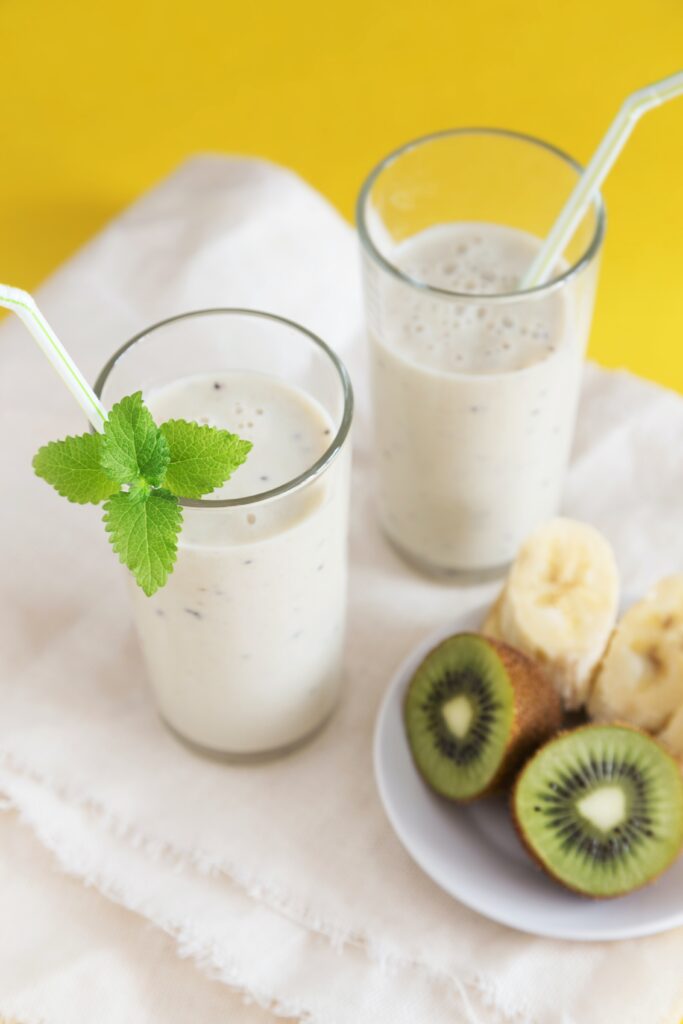
Vital for immune function, wound healing, and has a role in taste and smell. It is often taken as a supplement to prevent and reduce the duration of cold symptoms.
More Features plus the Pros and Cons of each vitamin
And you can always go to the 8 Popular Health Supplements blog
or get information a Health Coach
1. Vitamin D: The Sunshine Vitamin
Features:
- Promotes calcium absorption in the gut.
- Necessary for bone growth and bone remodeling.
- Has a role in cell growth, immune function, and reduction of inflammation.
Pros:
- Reduces risk of chronic diseases including osteoporosis, heart disease, and certain cancers.
- Supports immune system.
- May improve mood and ward off depression.
Cons:
- Too much vitamin D can lead to toxicity, causing nausea, vomiting, weakness, and serious complications like kidney damage.
- Some people may have allergic reactions to these supplements.
2. Vitamin C: Immunity Booster
Features:
- Powerful antioxidant.
- Helps in the production of collagen, absorption of iron, and maintaining cartilage, bones, and teeth.
Pros:
- Boosts immune system.
- Protects against cardiovascular disease.
- Promotes vigorous skin.
Cons:
- High doses can cause digestive disturbances.
- Some of these supplements may interact with certain medications.
3. Magnesium: The Master Mineral
Features:
- Involved in more than 300 biochemical reactions in the body.
- Helps maintain normal muscle and nerve function, supports a strong immune system, keeps the heartbeat steady, and bones strong.
Pros:
- Can alleviate symptoms of depression.
- Helps prevent type 2 diabetes, migraines, and cardiovascular diseases.
- Promotes sleep and stress reduction.
Cons:
- Taking this in very large doses can cause magnesium toxicity, with symptoms including diarrhea, nausea, and abdominal cramping.
- Some forms of of this supplement may be less readily absorbed by the body.
4. B-Vitamins: Energy and Mood Boosters
Features:
- Essential for metabolic processes, energy production, and proper functioning of the brain and nervous system.
Pros:
- Can improve mood and symptoms of depression.
- Aid in maintaining good well-being, playing a vital role in energy levels, brain function, and cell metabolism.
- Help prevent infections and support or promote cell health.
Cons:
- Excessive intake of certain B-vitamins can cause side effects. For example, too much B6 can lead to nerve damage, and excessive folate can mask a B12 deficiency.
- Some people may be sensitive to B-vitamin supplements, experiencing side effects like nausea and increased risk of drug interactions.
5. Omega-3 Fatty Acids: Heart and Brain Health
Features:
- Essential fats that play a crucial role in brain function and heart health.
- Found in fish oil, they have anti-inflammatory properties.
Pros:
- Support heart health by reducing blood pressure, reducing triglycerides, slowing the development of plaque in the arteries, and reducing the likelihood of heart attack and stroke.
- Can fight inflammation and autoimmune diseases.
- Support mental wellbeing by fighting depression and anxiety.
Cons:
- Fish oil supplements can cause mild side effects, including bad breath, heartburn, and nausea.
- May interact with certain medications, such as blood thinners.
6. Probiotics: Gut Health Guardians
Features:
- Live bacteria and yeasts that are good for your digestive system.
- Help keep your gut strong and restore the natural balance of bacteria in your gut.
Pros:
- Can improve digestive health and reduce symptoms of certain digestive disorders.
- Boost immune system and prevent harmful bacteria from growing.
- Some strains can help with heart health and certain allergies.
Cons:
- Some people might experience gas, bloating, or an upset stomach when they first start taking probiotics.
- May not be suitable for people with weakened immune systems or severe illnesses.
7. Zinc: Immune Support and Wound Healing
Features:
- Necessary for immune function, wound healing, blood clotting, thyroid function, and much more.
- Plays a role in cell division, cell growth, wound healing, and the breakdown of carbohydrates.
Pros:
- Boosts immune function and reduces the risk of common illnesses.
- Promotes wound healing.
- May help treat acne and reduce inflammation.
Cons:
- Excessive zinc intake can lead to zinc toxicity, resulting in nausea, vomiting, loss of appetite, stomach cramps, diarrhea, and headaches.
- Long-term use of high-dose of this supplement may lead to copper deficiency.
Personal Experience
1. Vitamin D: The Sunshine Vitamin

Ever since I started working indoors, I noticed a drop in my energy levels and overall mood. My doctor suggested a blood test, which revealed a Vitamin D deficiency. Since incorporating these supplements into my daily routine, I’ve noticed a significant improvement in my mood and energy levels. My bones and joints also feel stronger, which has been a great motivator to stay active.
2. Vitamin C: Immunity Booster
I’ve always been prone to catching colds, especially during the winter months. I decided to give these supplements a try, aiming to boost my immune system. Over time, I’ve noticed fewer sick days, and when I do catch a cold, the duration and severity seem to be reduced.
3. Magnesium: The Master Mineral
Dealing with muscle cramps and trouble sleeping had become a regular part of my life until a friend recommended this supplement. Since adding this to my nightly routine, my sleep quality has improved tremendously, and the muscle cramps are now a rare occurrence.
4. B-Vitamins: Energy and Mood Boosters
Balancing work and personal life left me constantly feeling drained and fatigued. After some research, I decided to try B-vitamin supplements. The change wasn’t overnight, but I gradually started feeling more energetic and in a better mood.
5. Omega-3 Fatty Acids: Heart and Brain Health
Concerned about my hearts wellbeing due to a family history of heart disease, I decided to add Omega-3 fatty acid supplements to my diet. I’ve not only noticed an improvement in my cholesterol levels but also experienced a boost in mental clarity.
6. Probiotics: Gut Health Guardians
Digestive issues were a part of my life until I started taking probiotics. These supplements have helped balance my gut bacteria, leading to improved digestion and fewer stomach issues. I also noticed an unexpected improvement in my skin.
7. Zinc: Immune Support and Wound Healing
After reading about the immune-boosting properties, I decided to give it a try, especially during flu seasons. I’ve noticed a reduction in the number of colds I catch, and when I do, they seem less severe.
Pricing of the 7 Best Vitamins to take daily
1. Vitamin D: The Sunshine Vitamin
- Price Range: $5 – $25 per bottle
- Notes: These supplements are relatively inexpensive. The price can depend on the form (D2 or D3), dosage, and the number of servings per bottle.
2. Vitamin C: Immunity Booster
- Price Range: $5 – $30 per bottle
- Notes: Widely available and affordable. Prices may vary based on the form (ascorbic acid or a mineral ascorbate) and any additional ingredients included for enhanced absorption.
3. Magnesium: The Master Mineral
- Price Range: $10 – $40 per bottle
- Notes: The price of this supplement can depend on the type of magnesium (citrate, oxide, chloride, etc.), dosage, and brand quality.
4. B-Vitamins: Energy and Mood Boosters
- Price Range: $5 – $30 per bottle
- Notes: “B-vitamin” complexes that include a range of B-vitamins tend to be more expensive. Individual B-vitamins like B12 or B6 can be found at a lower price point.
5. Omega-3 Fatty Acids: Heart and Brain Health
- Price Range: $10 – $50 per bottle
- Notes: The price can vary significantly based on the source of the Omega-3s (fish oil, krill oil, algal oil for vegetarians/vegans), the concentration of EPA and DHA, and the brand.
6. Probiotics: Gut Health Guardians
- Price Range: $15 – $70 per bottle
- Notes: Probiotics can be on the pricier side, especially high-potency or multi-strain formulas. The price also depends on the number of colony-forming units (CFUs) and the brand’s reputation.
7. Zinc: Immune Support and Wound Healing
- Price Range: $5 – $20 per bottle
- Notes: These supplements are generally affordable, but prices can vary based on the form of zinc (picolinate, citrate, etc.), dosage, and brand.
When purchasing vitamins and supplements, it’s crucial to consider not just the price but also the quality, purity, and bioavailability of the product. Opting for reputable brands that undergo third-party testing can ensure that you’re getting a safe and effective product. Always consult with a healthcare professional before starting any new supplement regimen to ensure it’s appropriate for your well being.
Alternatives
1. Vitamin D: The Sunshine Vitamin
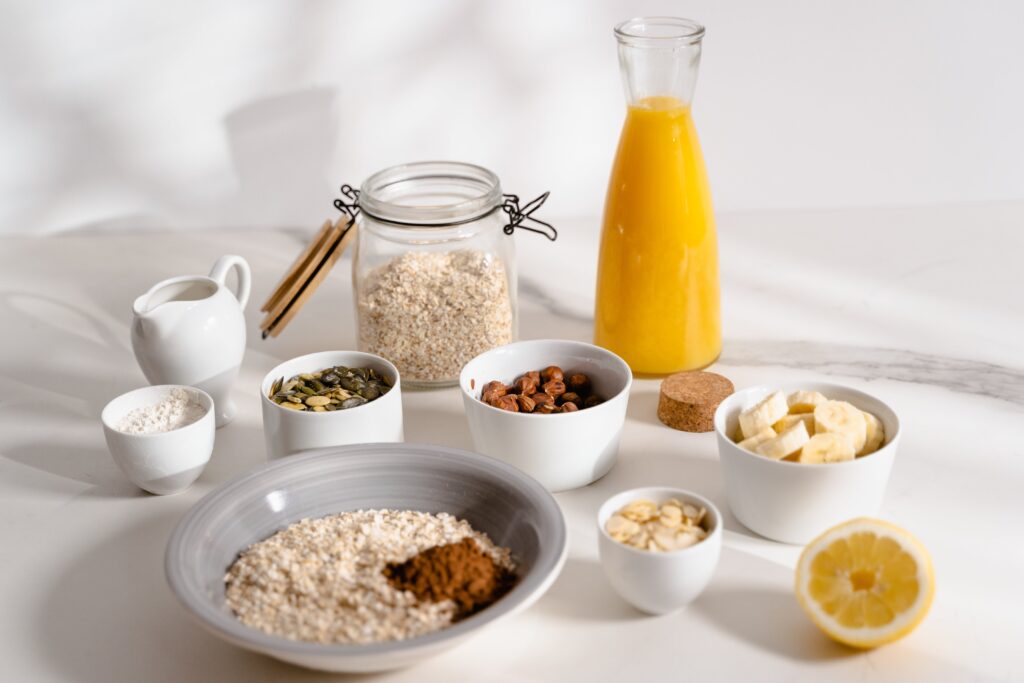
Alternatives: Fatty fish (such as salmon, mackerel, and sardines), beef liver, cheese, egg yolks, and fortified foods (such as milk, orange juice, and cereals). Sunlight exposure is also a natural source.
2. Vitamin C: Immunity Booster
Alternatives: Citrus fruits (oranges, grapefruits, lemons, and limes), strawberries, bell peppers, spinach, kale, and broccoli.
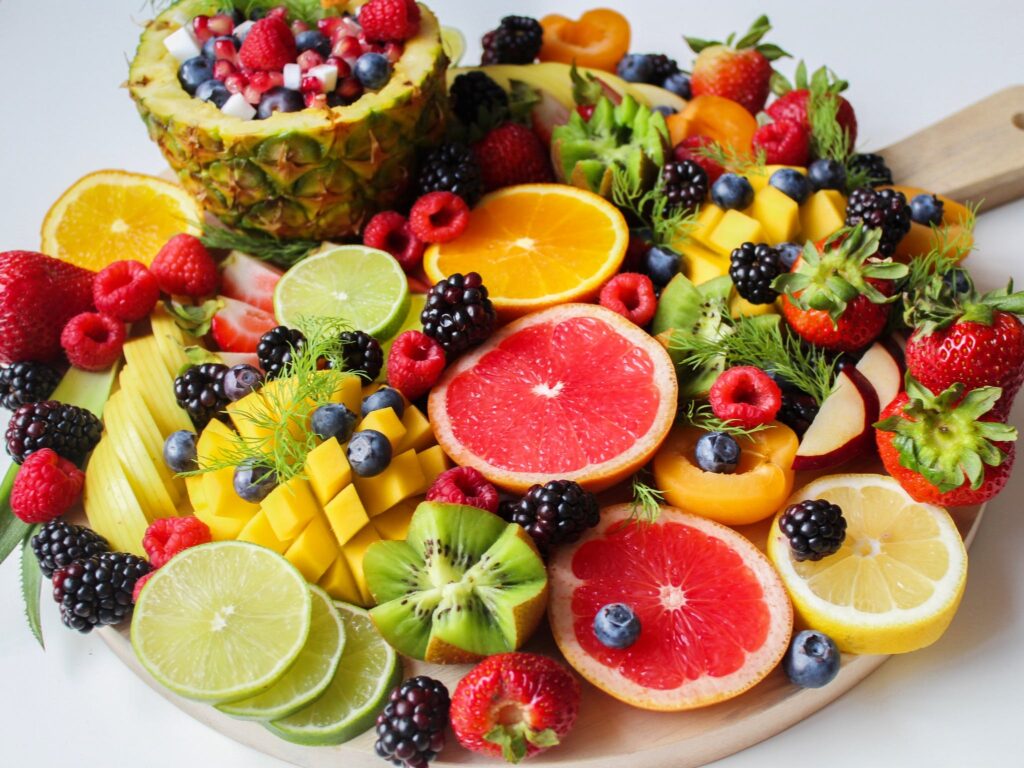
3. Magnesium: The Master Mineral

Alternatives: Green leafy vegetables (such as spinach), nuts, seeds, whole grains, beans, legumes, and fish.
4. B-Vitamins: Energy and Mood Boosters
- Alternatives:
- B6: Fish, beef liver, potatoes, starchy vegetables, and non-citrus fruits.
- B12: Meat, fish, poultry, eggs, and dairy products.
- B3 (Niacin): Meat, fish, poultry, and whole grains.
- Folate: Beef liver, legumes, asparagus, eggs, leafy greens, and citrus fruits.

5. Omega-3 Fatty Acids: Heart and Brain Health

Alternatives: Fatty fish (such as salmon, mackerel, sardines, and trout), flaxseeds, chia seeds, walnuts, and soybeans.
6. Probiotics: Gut Health Guardians
Alternatives: Fermented foods such as yogurt, kefir, sauerkraut, kimchi, miso, and kombucha. These foods contain live bacteria that can contribute to gut health.

7. Zinc: Immune Support and Wound Healing

Alternatives: Meat, shellfish, legumes (chickpeas, lentils, and beans), seeds (especially pumpkin seeds), nuts, dairy products, eggs, and whole grains.
These alternatives are not only rich in the mentioned nutrients but also come with a plethora of other vitamins, minerals, and beneficial compounds that contribute to overall fitness and well-being. However, in some cases, supplements might be necessary if it’s challenging to get enough of these nutrients from food alone or due to specific medical conditions. Always consult with a healthcare professional before making significant changes to your diet or starting a new supplement regimen.
Conclusion: Navigating the World of Essential Vitamins
Navigating through the world of vitamins and supplements can be overwhelming, but understanding the role of key nutrients can pave the way for improved health and well-being. In this guide, we explored seven crucial supplements for prevention, delving into their functions, benefits, and natural sources.
- Vitamin D, dubbed the sunshine vitamin, is vital for bone strenght, immune function, and mood regulation. While sunlight is a natural source, fatty fish and fortified foods can also contribute to adequate intake.
- Vitamin C stands out as an antioxidant powerhouse, boosting immunity, promoting skin health, and aiding in iron absorption. Citrus fruits, berries, and vegetables are rich in this essential vitamin.
- Magnesium, involved in numerous biochemical reactions, supports muscle function, heart health, and stress reduction. Green leafy vegetables, nuts, and whole grains are excellent sources.
- B-Vitamins play a critical role in energy production, brain function, and cell metabolism. Meat, fish, eggs, and dairy products provide a variety of B-vitamins essential for overall wellbeing.
- Omega-3 Fatty Acids offer substantial benefits for heart and brain health. Fatty fish and plant-based options like flaxseeds and walnuts are great choices to ensure adequate intake.
- Probiotics nurture gut health, supporting digestion and boosting immunity. Fermented foods like yogurt, kefir, and sauerkraut are natural sources of these beneficial bacteria.
- Zinc is a mineral powerhouse, aiding in immune function, wound healing, and cell division. Meat, shellfish, and legumes are among the top food sources for this.
Main Takeaways:
- A Balanced Diet is Key: While supplements can fill nutritional gaps, obtaining these nutrients from a balanced, varied diet is preferred.
- Individual Needs Vary: Personal health conditions, age, and lifestyle factors influence individual nutrient needs. Consulting with a healthcare professional ensures a tailored approach to supplementation.
- Quality Over Quantity: When choosing supplements, opt for reputable brands that prioritize quality, purity, and bioavailability.
Embarking on a journey towards optimal health involves understanding the intricate world of vitamins and nutrients, and this guide serves as a stepping stone to making informed decisions for a healthier you.


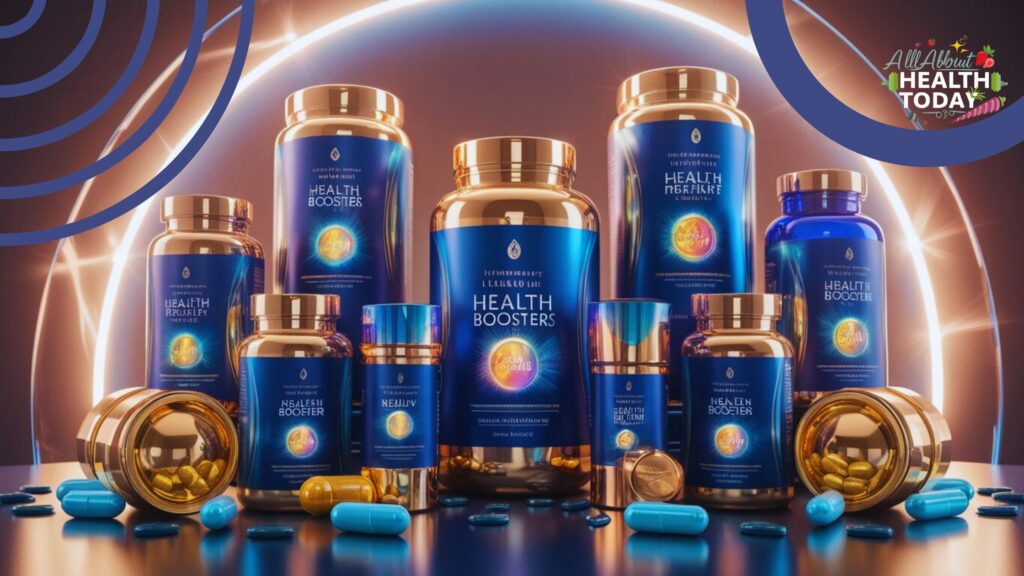

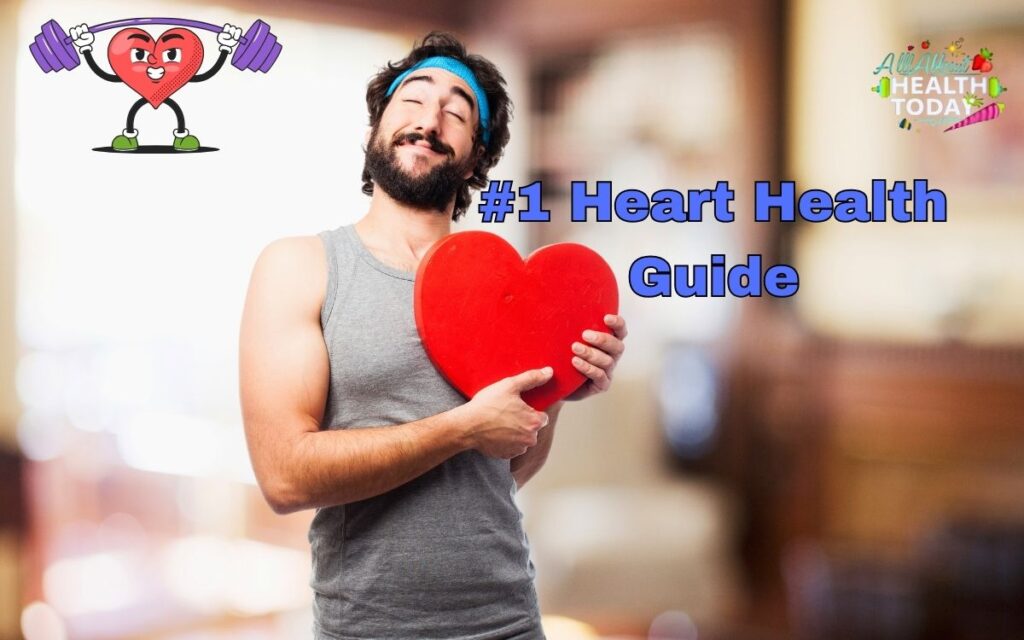



Comments are closed.